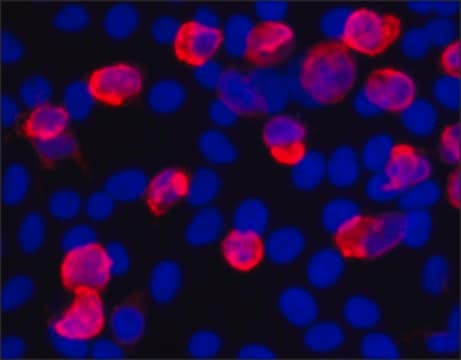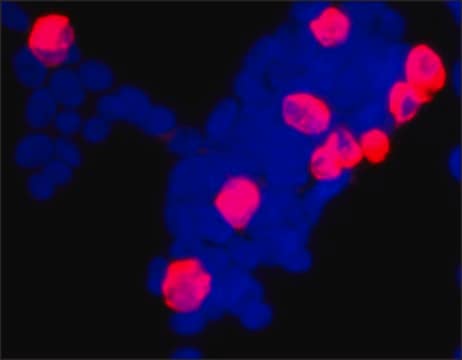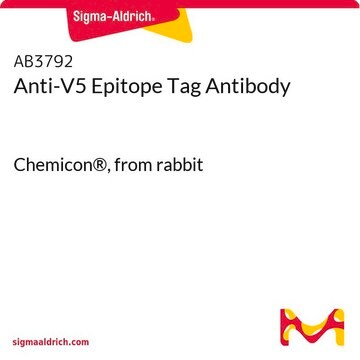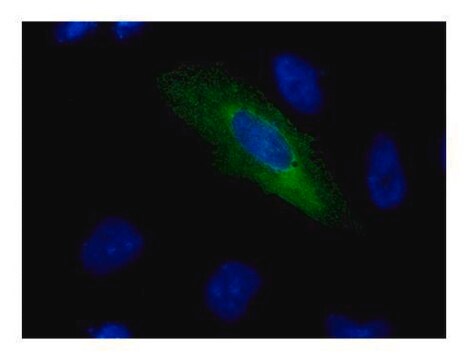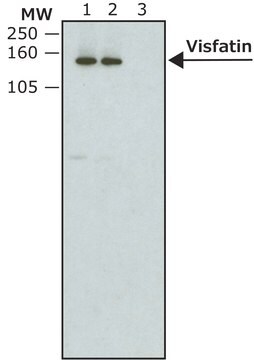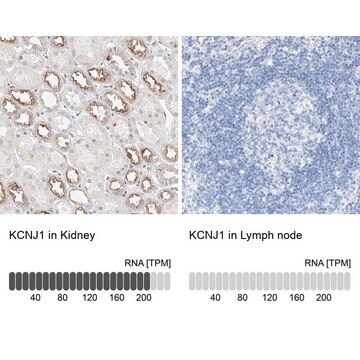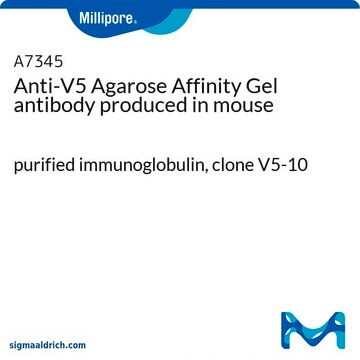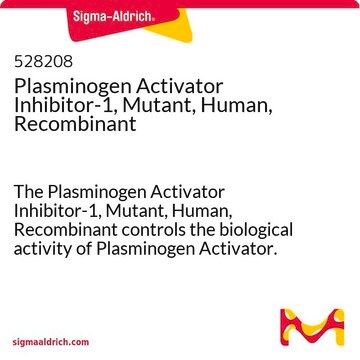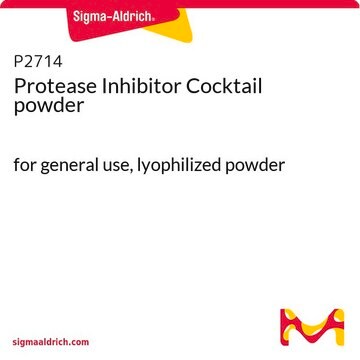SAB1306079
ANTI-V5 TAG antibody produced in rabbit
IgG fraction of antiserum, buffered aqueous solution
Synonym(s):
Tag from influenza hemagglutinin protein
Sign Into View Organizational & Contract Pricing
All Photos(1)
About This Item
UNSPSC Code:
12352203
NACRES:
NA.43
Recommended Products
biological source
rabbit
Quality Level
antibody form
IgG fraction of antiserum
antibody product type
primary antibodies
clone
polyclonal
form
buffered aqueous solution
technique(s)
western blot: 1:1000
shipped in
wet ice
storage temp.
−20°C
target post-translational modification
unmodified
Application
ANTI-V5 TAG antibody produced in rabbit has been used in western blotting(1:1000).
Physical form
Supplied in PBS with 0.09% (W/V) sodium azide
Disclaimer
Unless otherwise stated in our catalog or other company documentation accompanying the product(s), our products are intended for research use only and are not to be used for any other purpose, which includes but is not limited to, unauthorized commercial uses, in vitro diagnostic uses, ex vivo or in vivo therapeutic uses or any type of consumption or application to humans or animals.
Not finding the right product?
Try our Product Selector Tool.
Storage Class
10 - Combustible liquids
flash_point_f
Not applicable
flash_point_c
Not applicable
Choose from one of the most recent versions:
Certificates of Analysis (COA)
Lot/Batch Number
Don't see the Right Version?
If you require a particular version, you can look up a specific certificate by the Lot or Batch number.
Already Own This Product?
Find documentation for the products that you have recently purchased in the Document Library.
Stefan Bartl et al.
Neurobiology of disease, 141, 104943-104943 (2020-05-15)
Huntington's disease (HD) is caused by a highly polymorphic CAG trinucleotide expansion in the gene encoding for the huntingtin protein (HTT). The resulting mutant huntingtin protein (mutHTT) is ubiquitously expressed but also exhibits the ability to propagate from cell-to-cell to
Cory A Ocasio et al.
Nature biotechnology (2024-01-09)
The 23 human zinc finger Asp-His-His-Cys motif-containing (ZDHHC) S-acyltransferases catalyze long-chain S-acylation at cysteine residues across an extensive network of hundreds of proteins important for normal physiology or dysregulated in disease. Here we present a technology to directly map the
Gonzalo Federico Mayol et al.
Biochimica et biophysica acta. Molecular cell research, 1867(1), 118566-118566 (2019-11-02)
Nuclear-cytoplasmic trafficking of proteins is a highly regulated process that modulates multiple biological processes in eukaryotic cells. In Giardia lamblia, shuttling has been described from the cytoplasm to nuclei of proteins during the biological cell cycle of the parasite. This
Our team of scientists has experience in all areas of research including Life Science, Material Science, Chemical Synthesis, Chromatography, Analytical and many others.
Contact Technical Service